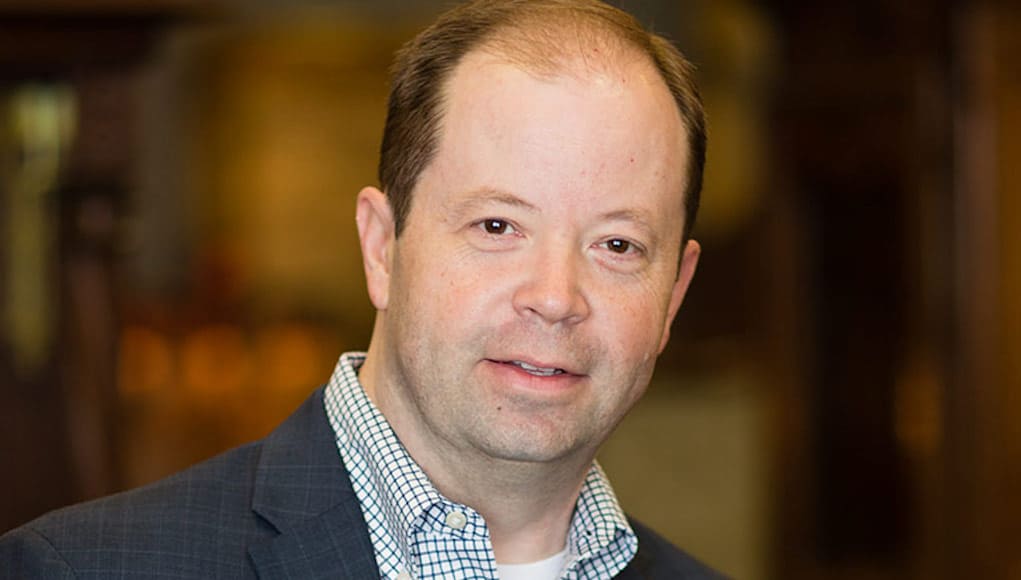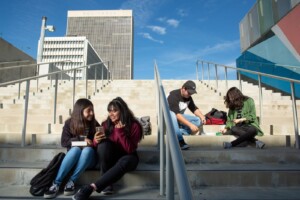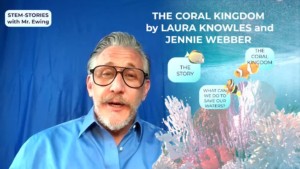The Science of Deliberate Practice: What it Means for Education

There is growing evidence that individuals can achieve high levels of performance through extended training. You mayremember the 10,000 hour rule discussed by Malcolm Gladwell in Outliers (2011). It was based on the study of deliberate practice by on Anders Ericsson which he expanded on in Peak: Secrets from the New Science of Expertise (2015).
 Based on the growing body of evidence about purposeful practice, Gene Kern’s new book explores the implications for K-12 education. Unlocking Student Talent: The New Science of Developing Expertise is organized into three section. The first covers student engagement– something Olympic coaches don’t need to worry about.
Based on the growing body of evidence about purposeful practice, Gene Kern’s new book explores the implications for K-12 education. Unlocking Student Talent: The New Science of Developing Expertise is organized into three section. The first covers student engagement– something Olympic coaches don’t need to worry about.
The second section recommends how deliberate practices can be incorporated into general education. Kerns and his co-authors describe how students, after actively engaging in classroom activities, can perform repeated tasks with immediate feedback to build skill and change behavior. Guided instruction and designed practice can help struggling students improve their performance and achieve at high levels.
Developing independent learners is discussed in the third section. Following patterns in other domains such as music and chess, students gradually develop the skills they to reason independently and evaluate their own performance.
Not just psychological, it’s biological. As Coyle (2009) notes, “The more nerves fire, the more myelin wraps around it…the faster the signal travels, increasing velocities up to one hundred times over the signal sent through an uninsulated fiber.” Narrow neuro alleys become superhighways with deliberate practice.
Kerns was a teacher in Virginia and Delaware. His doctoral work in education leadership was to serve as a district curriculum director. He deployed the popular Accelerated Reader from Renaissance and appreciated how the practice product boosted engagement and provide learning analytics to teachers.
Gene joined Renaissance as Chief Academic Officer 12 years ago. After Accelerated Reader and Accelerated Math, the company expanded its assessment and analytics offerings.
In 2009, Kerns was inspired by Talent Code by Daniel Coyle, a thoughtful discussion of purposeful practice. It set off a decade of study by Kerns which led to Unlocking Student Talent.
As Coyle describes, there are two types of motivation. The first is an explosion often triggered by witnessing an inspiring performance inspire. The other is stoking the fire, a slow and steady build over time. Teachers need to consider both and look for ways to structure practice that is engaging and to build spring application opportunities
The language of part two, on deploying lessons of deliberate practice in education, is striking and unusual. There are many sports analogies. For example, teachers should balance drill and scrimmage–practice and application opportunities (e.g., the combination of personalized and project-based learning).
It’s important that practice be on the edge of abilities and, as a result, it can be grueling. Kerns urges “reachfulness,” coaching learners to make conscious decisions on the edge of one’s abilities. This idea is Dweck’s notion of the brain as a muscle and working it hard builds new connections. It also suggests that only small portion we can explain genetically, it’s mostly how willing you are to work hard, and the mentors and coaches you encounter along the way.
There is a chapter on recovery. Learners can work hard for two, perhaps four hours at the maximum. A school day can’t be eight hours of deliberate practice.
The research on deliberate practice supports competency-based education. “Math is ruthlessly cumulative,” said Kerns, “you have to know the basics.”
The last section is on coaching for excellence. Kerns notes the example of basketball legend John Wooden. He would spend time preparing for each practice, setting goals for the team and each individual.
As learners mature, they become more metacognitive of their practice routines, setting and tracking goals.
On the issue of voice and choice in learning, Kerns suggests it’s important to differentiate between what to learn and how to learn. Learners tend to do what’s easy rather what’s most valuable. A coach helps learners do the best thing next, not just the easiest.
How will Renaissance use this research on deliberate practice? Kerns said they plan to expand scope of practice solutions and help teachers structure more instructional reading that is more intentional. The key is “Feedback, feedback, feedback,” said Kerns.
For more, see:
- Learning Engineering: Merging Science and Data to Design Powerful Learning Experiences
- 30 Leaders on the Successes and Challenges of Project-Based Learning
- How and Where EdTech Will Help
Stay in-the-know with all things EdTech and innovations in learning by signing up to receive the weekly Smart Update.








Jody Steinhaus
Purposeful practice is the key. Only perfect practice makes perfect.
Belinda
Great info!
Replies
Erik Day
Thanks Belinda!
Virginia Wiedenfeld
I can not wait to read the book! Thank you for encourage educators to utilize deliberate practice when teaching!
Veronica A. Gonzalez
Information is very informative.
Shayla George
Thank you for sharing! Very helpful information!
Jamye Jaco
Information is very helpful! I can't wait to read the book!!!